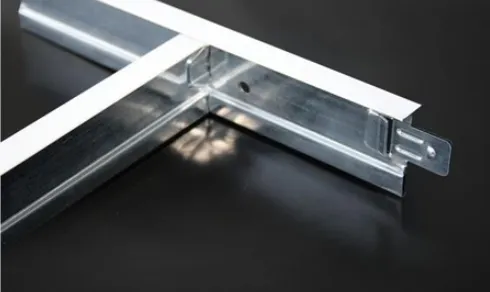Dec . 29, 2024 21:09 Back to list
Exploring the Benefits of PVC Gypsum in Modern Construction and Design
Understanding PVC Gypsum A Versatile Building Material
In the ever-evolving world of construction materials, PVC gypsum has emerged as a versatile product combining the lightweight properties of PVC (polyvinyl chloride) with the acoustic and fire-resistant characteristics of gypsum. This innovative material is now gaining traction in various residential and commercial applications, reshaping how we think about wall and ceiling systems.
What is PVC Gypsum?
PVC gypsum refers to a composite material that integrates PVC with gypsum board. Gypsum itself is a mineral often used in the manufacture of drywall, which is pivotal in building interiors. When PVC is added to this mix, it enhances the properties of traditional gypsum while providing additional benefits, making it an appealing choice for builders and architects.
Benefits of PVC Gypsum
1. Lightweight and Easy Handling One of the most significant advantages of PVC gypsum is its lightweight nature. This quality makes it easier to handle, transport, and install, ultimately speeding up the construction process. Traditional gypsum boards can be cumbersome and may require additional manpower to manage.
2. Durability PVC gypsum is resistant to moisture, making it an ideal option for high-humidity environments such as bathrooms and kitchens. In contrast, traditional gypsum can deteriorate when exposed to water. The integration of PVC also contributes to improved impact resistance, reducing the likelihood of damage.
3. Fire Resistance Gypsum is inherently fire-resistant, and when combined with PVC, it maintains this crucial property. This makes PVC gypsum a suitable choice for applications where fire safety is a priority, providing peace of mind for homeowners and builders alike.
pvc gypsum

4. Acoustic Performance The sound-absorbing qualities of gypsum are well known, and PVC gypsum enhances this feature further. It provides excellent sound insulation, making it an excellent choice for offices, educational institutions, and residential properties where noise reduction is a concern.
5. Aesthetic Flexibility PVC gypsum offers a wide range of designs, colors, and finishes, allowing architects and designers to create visually appealing interiors. Whether constructing a contemporary office space or a cozy home, PVC gypsum can be tailored to meet diverse aesthetic needs.
Applications of PVC Gypsum
The versatility of PVC gypsum makes it suitable for various applications. It can be used for ceiling tiles, wall panels, and partition systems. In commercial settings, it serves as an excellent choice for offices, restaurants, and retail spaces due to its aesthetic appeal and functional benefits. In residential constructions, PVC gypsum is increasingly used in living rooms, bedrooms, and kitchens to create stylish and functional interiors.
Environmental Considerations
As global awareness of environmental issues grows, it is essential to consider the sustainability of construction materials. PVC gypsum can be manufactured to meet environmentally friendly standards, including low emissions and recyclable materials. The longevity and durability of PVC gypsum also contribute to sustainability, as products that require less frequent replacement reduce overall environmental impact.
Conclusion
In conclusion, PVC gypsum is revolutionizing the construction industry by providing a lightweight, durable, and aesthetically pleasing solution. Its impressive characteristics make it a top choice for various applications, benefiting builders, architects, and homeowners alike. As the demand for innovative and efficient building materials continues to rise, PVC gypsum stands out as a solution that meets modern construction needs while upholding performance and sustainability standards. With its many advantages, PVC gypsum is not just a choice—it's a smart investment for the future of building.
-
Quality Ceiling Trap Doors & Access Panels | Easy & Secure AccessNewsAug.30,2025
-
Durable Ceiling T Grid Systems | Easy InstallationNewsAug.29,2025
-
PVC Gypsum Ceiling: Durable, Laminated Tiles for Modern SpacesNewsAug.28,2025
-
Pvc Gypsum Ceiling Is DurableNewsAug.21,2025
-
Mineral Fiber Board Is DurableNewsAug.21,2025
-
Ceiling Tile Clip Reusable DesignNewsAug.21,2025







